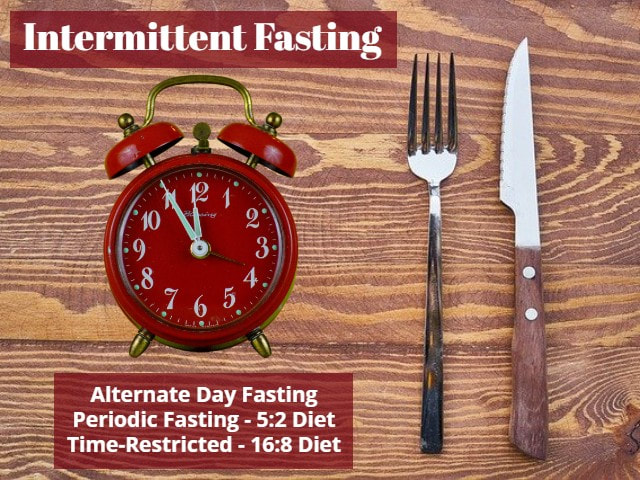Should You Eat Three Meals A Day!We have learned that eating three meals a day, plus the occasional snack, is the healthiest way of eating. But is this true? Have people always eaten in this pattern? Three meals a day may be a relatively novel behavior for our species. For millennia our ancestors may have only consumed one large meal a day or went several days at a time without food. In the European Middle Ages, breakfast was not usually considered a necessary and important meal, and was practically nonexistent during the earlier medieval period. Breakfast in some times and places, was solely granted to children, the elderly, the sick, and to working men. Anyone else did not speak of or partake in eating in the morning. Eating breakfast meant that one was poor, was a low-status farmer or laborer who truly needed the energy to sustain his morning's labor, or was too weak to make it to the large, midday dinner. The English word "dinner" referred originally to breaking a fast. It was not until the 15th century that "breakfast" came into use in written English to describe a morning meal; literally a breaking of the fasting period of the night just ended. When there was no electricity, people got up earlier to make use of daylight. They worked hard in the fields from sun-rise, and by midday they had often worked for up to six hours. That’s when they would take a break to eat. By 18th century the eating habits of the middle and lower classes were determined by their working hours. The concept of eating three meals a day was primarily shaped by the industrial revolution in the early 19th century, when working hours were regulated. Laborers needed an early meal to sustain them at work. They were also given an opportunity to take a break and eat mid-day. Normally, after long hours of work when they returned home, some ate another meal with their families. With no electricity cooking dinner after the sun-set was not an option. But as artificial lighting become more available, dinner was pushed back later and later in the evening and became part of the eating habit. With the easy availability of foods and extensive marketing, this way of eating gradually has been normalized and ingrained in our culture. Generally, the number of meals eaten every day is a cultural pattern, and people have adopted this pattern because there’s a comfort in predictability. The question you need to ask should be; is ‘three meals per day’ really the best way of eating? Intermittent Fasting ScheduleIntermittent fasting is a term for various meal timing schedules that cycle between a period of fasting “not eating” followed by a period of eating freely over a given period. The three most studied intermittent-fasting methods are:
Intermittent Fasting Effects On HealthOne might think that human body is not meant to run on empty stomach, that to function optimally it constantly needs a source of fuel. In fact, humans have evolved to function well with intermittent fasting. Unlike people today, our ancestors did not consume three regularly spaced, large meals every day, nor did they live a sedentary life. They were occupied with obtaining food in an environment where sources of food were sparsely distributed. Over time, human body and brain underwent evolutionary changes that supported adaptation to such environments. Today, intermittent fasting is often presented as a means of stressing your body—in a good way. There is a concept in biology called hormesis, which can be thought of as the, that-which-doesn’t-kill-you-makes-you-stronger principle. Exercise is the classic example, where you put stress on your heart and muscles, and as long as there’s sufficient recovery time, you are all the healthier for it. Is that the case with intermittent fasting? Rafael de Cabo and Mark P. Mattson’s reviewed the, Effects of Intermittent Fasting on Health, Aging, and Disease in The New England Journal of Medicine. The research shows, cells respond to intermittent fasting leads to activities like DNA repair, protein quality control and autophagy which improve one’s health span and potentially even one’s lifespan. Accordingly, the body’s organ systems like, nervous and digestive systems, respond to intermittent fasting in ways that enable them to tolerate or overcome the challenge and then return to normal. Our body, in many ways benefits from a prolonged daily fast, one that lasts at least 16 hours. For example, the liver stores glucose "our carbohydrate stores", which body primarily uses for energy. Typically, it takes about 12 hours for the body to use up the calories coming from the glucose, and then switches to the body fat. At that point, our body relies more on our fat stores for energy which leads to having less fat in the body. This process is called "metabolic switching". However, because most people eat three meals a day, they don’t experience the metabolic switching, says Mark P. Mattson, neuroscientist at Johns Hopkins University School of Medicine. Intermittent fasting benefits include:
Intermittent-Fasting And Weight LossIt is proven that fasting leads to weight loss. So, if you are trying to lose weight, 16:8 diet can be one of the best methods. All you need to do is stop eating by 8 p.m., skip breakfast the next morning and then eat at noon. You can expect to see result in a month or so, says Dr. Mattson. Researchers mentioned that, when switching to an intermittent fasting regimen it takes some time for the body to adjust, and some people might experience hunger, irritability and a reduced ability to concentrate. However, these initial side effects usually disappear within a month as the body and brain become accustomed to the new habit, they added. To manage the side effects, Dr. Mattson suggests that intermittent fasting beginners, gradually over a period of several months need to reduce the time window during which they consume food each day, with the goal of fasting for 16 to 18 hours a day. Many reported feeling clear, elated, and alert—even euphoric after the initial side effects disappeared. This may be in part due to the significant rise in endorphins that accompanies fasting. Mood enhancement during fasting is thought to perhaps represent an adaptive survival mechanism to motivate the search for food. This positive outlook towards the future may then facilitate the behavioral change necessary to lock in some of the weight loss benefits. Keep in mind that fasting is not for everyone, especially pregnant women, children and those with certain medical illness. For individuals with pre-existing conditions, a dietitian or nutritionist should be consulted to ensure that the nutritional needs of the patient are being met and to provide continued counseling and education. Regardless of the diet you choose, remember that you need to eat healthy foods, including whole grains, healthy fats and protein, and avoid refined carbohydrates added Dr. Mattson. Fasting has been branded the "next big weight loss fad", but before it became a wellness trend, it was and still is practiced by religious groups. Ramadan is a great example of prolonged intermittent fasting; a month-long period in which devout Muslims abstain from food and drink from dawn to dusk, as it is meant to teach self-control and discipline. Related Reading: Sources
1 Comment
7/17/2021 12:02:57
Amazing blog, I'm very happy to read this blog. Basically, I know new many things to read this blog. I strongly believe that the blog delivers the best information to its audience.
Reply
Leave a Reply. |
Halal In Japan
|
|



 RSS Feed
RSS Feed





